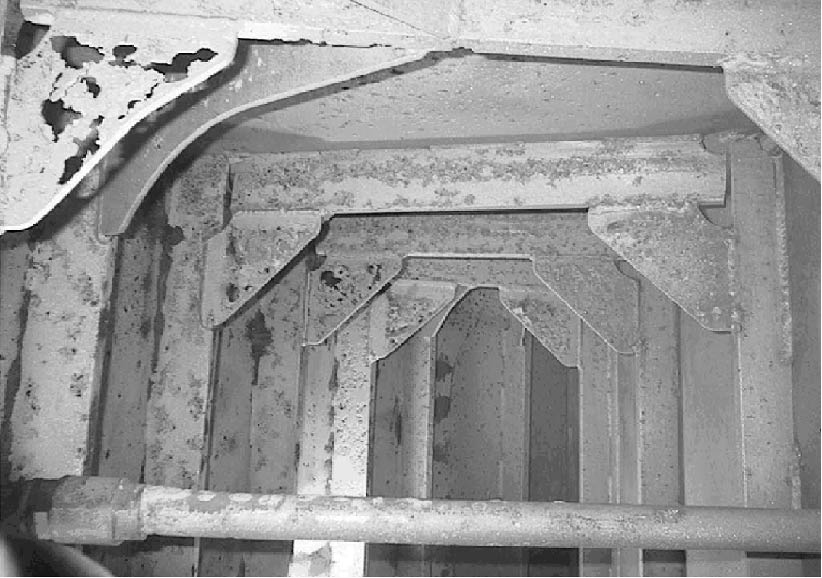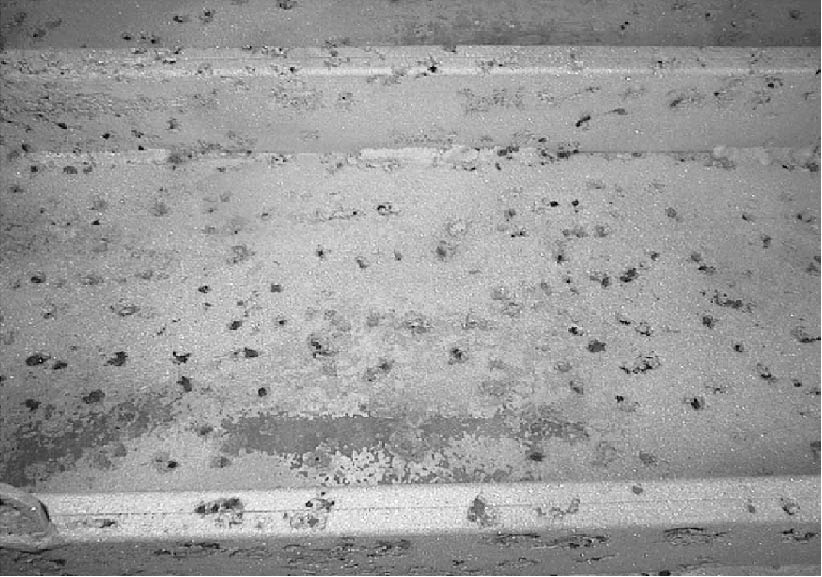Aluminium fresh water tanks: Near collapse due to serious corrosion
During an owner’s annual inspection, serious corrosion attacks were found in integrated aluminium fresh water tanks, which required extensive repair.
Brackets and stiffeners were found partly corroded through, as shown in figures 1 and 2. The corroded areas in the fresh water tank had to be partly renewed and repaired to an acceptable standard.


Probable Cause
The process for cleaning the fresh water tanks was considered to have been a major factor in the corrosion process. The fresh water tanks were sterilised annually, which exposed the tanks to a solution of hypochlorite for 12-24 hours. In addition, the shore-supplied water was frequently chlorinated, which meant that the tanks were frequently exposed to chlorides.
Even small amounts of hypochlorite can be very dangerous for aluminium, irrespective of the Al-alloy chemical composition, resulting in the development of serious pitting. Once pitting corrosion has started, it may continue to develop for a certain period if the tank is not properly washed with water after the application of hypochlorite. The filling and emptying of the tank is not sufficient to remove all the corrosion products. The reason for the corrosion attack is considered to be that the thin aluminium film on the surface is depolarised and locally broken down, in connection with the formation of chlorine released from the hypochlorite.
Lessons to be Learned
- Hypochlorite or other chloride-containing chemicals should not be used for sterilisation of aluminium fresh water tanks if the tanks have not been fully coated;
- In the case of uncoated aluminium fresh water tanks, other means of sterilisation than chloride-containing chemicals is needed, e.g. by using ultra-violet light;
- If hypochlorite is used in coated tanks, it is essential that the tanks are thoroughly cleaned after the process. This is to minimised the change of corrosion occurring in the event of the coating breaking down.
Safety Event
Published: 1 January 2002
Download: IMCA SF 01/02
IMCA Safety Flashes
Submit a Report
IMCA Safety Flashes summarise key safety matters and incidents, allowing lessons to be more easily learnt for the benefit of all. The effectiveness of the IMCA Safety Flash system depends on Members sharing information and so avoiding repeat incidents. Please consider adding [email protected] to your internal distribution list for safety alerts or manually submitting information on incidents you consider may be relevant. All information is anonymised or sanitised, as appropriate.
IMCA’s store terms and conditions (https://www.imca-int.com/legal-notices/terms/) apply to all downloads from IMCA’s website, including this document.
IMCA makes every effort to ensure the accuracy and reliability of the data contained in the documents it publishes, but IMCA shall not be liable for any guidance and/or recommendation and/or statement herein contained. The information contained in this document does not fulfil or replace any individual’s or Member's legal, regulatory or other duties or obligations in respect of their operations. Individuals and Members remain solely responsible for the safe, lawful and proper conduct of their operations.
